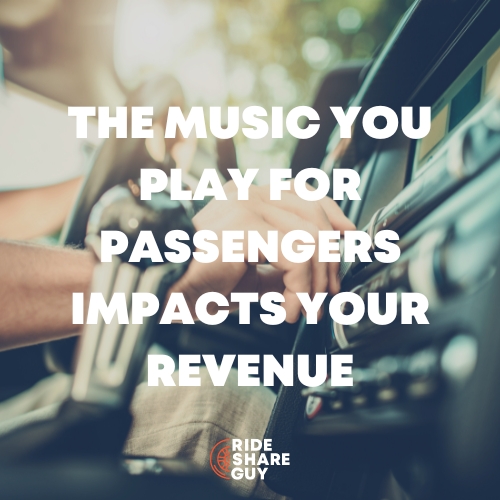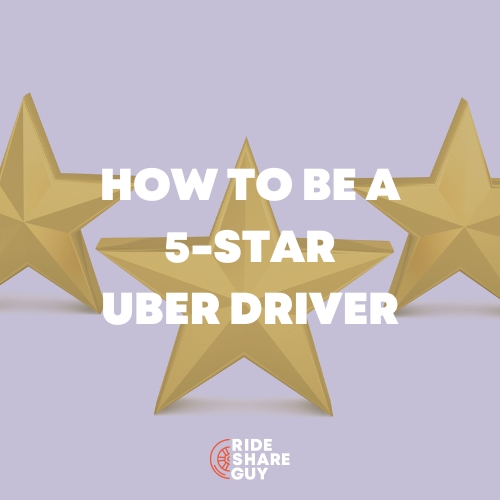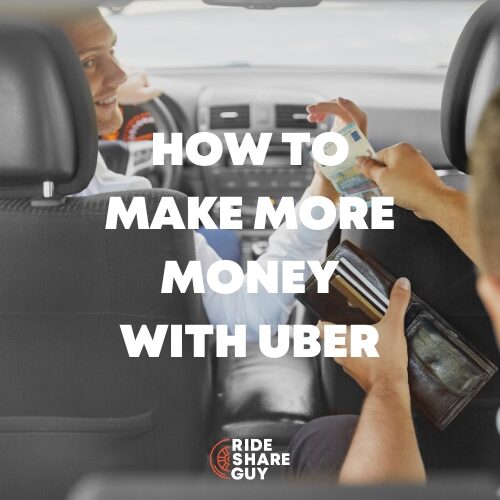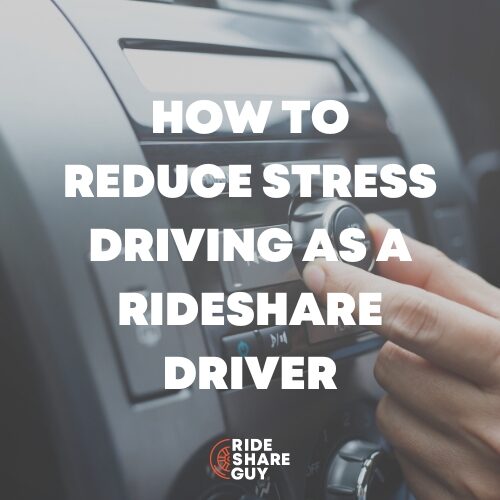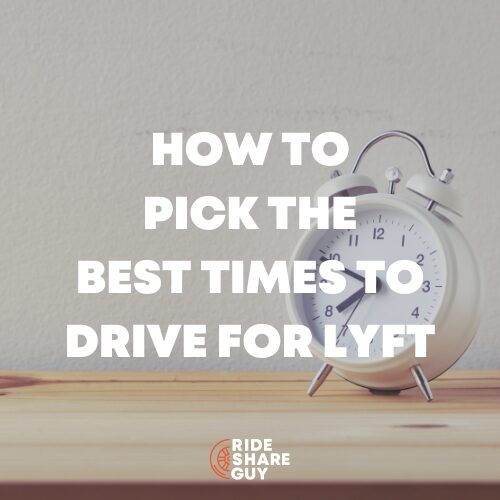Harry here. Uber isn’t known for treating its drivers like prized possessions and it often shows. This week, we’re doing a two-part series on ‘What To Do When Uber Lowers Rates In Your City’. On Monday, we talked about why we’re seeing so many Uber fare cuts recently and what the future holds.
Today, RSG contributor, Christian Perea takes a look at what you as a driver can do if you’re fed up with lower rates. Now obviously this is about a lot more than just rates, but I think rates are one thing that ALL drivers can agree on and that we care about most. There are definitely a lot of positive aspects of being an Uber driver, but there are also some bigger looming issues that drivers need to pay attention to and be aware of. This article will help you find a positive outlet to get your thoughts and concerns heard by people who matter.
So Uber lowered your rates…again, and now you feel powerless to do anything about it.
You used to check your email every day fearing bad news, and nowadays you have embraced the learned helplessness. It doesn’t sting so much when you know you will be shocked again, especially when you feel like you have no control over it.

Recently, we have seen an extra round of rate cuts in certain cities, extra “Safe Ride” fees, higher commissions and nixing (maybe) the no-show fee in six markets. If there is anything we have all learned, it is that Uber doesn’t really care what drivers think about these changes. It will just do them. Some drivers have tried to push back. Facebook feeds fill with anger. Yet nothing changes.
Predictably, some drivers are trying to get a strike to go “viral.” Again. This article will focus more on what you can do as an individual, today and right now, if you’re fed up. In fact, we are going to take some notes from Uber on how to develop an effective force. But first…
Why Rideshare “Strikes” Tend to Fail
I’ve got some experience with organizing drivers to protest. Here’s what I’ve learned:
- Inability to Communicate: There are a huge number of drivers out there, maybe 500,000 or more. Many don’t keep up to date with the industry (but you do 🙂 ) so when Uber cuts rates, would-be organizers either do not know how to reach out to other drivers or are often completely unaware that rates have even been cut. At the end of the day, there is no easy way to communicate with even 20% of drivers. No drivers = No strike.
- They Ask Too Much: The most recent strike effort is trying to get drivers to take an entire weekend off. The previous one asked for a whole day off. When a call-to-action requires so much, it is highly unlikely to succeed. These sort of things need to be narrow in scope. Take a “synchronized break” for an hour on a Saturday at 9PM. I once used this strategy in San Diego, where we would all just eat pizza and (literally) drink kool-aid for an hour. We had over 50 drivers participate for a few weeks and it would surge pretty crazy. I quit when I realized I didn’t have the time or resources to fully commit to it.
- Using the Term “Strike”: The goal should be to unite. The word ‘strike’ is associated with unions and unions are associated with democrats and liberals. Calling something a “strike” politicizes and alienates drivers who now equate your “strike” with communists parachuting into their hometown like a bad remake of Red Dawn. Again, we are independent contractors. Just call it a synchronized break or basically anything but ‘strike’.
- Decentralized Command Structure: Strike Ops require a lot of time and commitment to coordinate. You have to have an effective political leader, time to coordinate with the press, ways to contact drivers on the ground, etc. This all requires people and likely money to compensate them for taking the days or even weeks off. So many of these strikes get a lot of grand ideas from people with very little follow-through. If they gain traction, they are hard to coordinate and eventually some dumb-ass says “Let’s throw rocks at cars!” Next thing you know, your strike gets branded as “crazy,” “extreme” and worse.
- Intangible Results: Previous strikes have brought the treatment of drivers to the forefront of the press. Very few passengers now think that we make money hand-over-fist. They have established there will be noise when driver pay is affected. These results are not immediately tangible, but the long term affects have been.
You Still Have Power
Uber may not be willing to take your angry support emails to heart, but there is still the public, journalists, and government bodies that are eager to hear what you have to say as they scramble to respond to the sharing economy’s explosion of growth.
You know the “Safe Rides Fee” that just went up? Well, a great deal of that is actually spent on lobbying for Uber. Politics is so important to Uber that they hired David Plouffe to effectively run a political campaign for them. He has been extremely effective. Every time you complete a trip, you contribute to Uber’s political machine.
This election cycle will see the sharing economy/1099-workforce getting much more attention. Regardless of where you stand politically, there is no denying that politicians seeking office are likely interested to hear from you as they form their positions on the sharing economy. Especially if it is a unified statement with signed support from large groups of voters… drivers.
We have already seen Jeb Bush take an Uber and Hillary Clinton met with Logan Green shortly after she stated a position that seemed to not support drivers being classified as independent contractors. Others will follow. It doesn’t matter who you vote for. Every politician will have to take a stance on this eventually, and it’s still early enough to shape their perception and make a difference. So write them.

Presidential Candidate Campaign Contact Information:
Feel free to add to this list by commenting below:
- Hillary Clinton
- Jeb Bush
- Bernie Sanders
- Ben Carson
- Donald Trump (okay, fine…)
US Senators and Representatives
CongressMerge has an excellent tool that allows you to automatically pull-up all of your representatives and senators by simply typing in your address. The site provides a list of your local members with links to contact them via email. It’s super simple and easy to do. I see no downside to sharing your thoughts as it provides your representatives with an unfiltered view of the sharing economy. It takes five minutes. Do it now.
Realize that many politicians have only heard what they have been told by lobbyists for the sharing economy or lobbyists for the cab industry. You are the voter, so provide them with some words and opinions of your experience. You would be surprised at how many actually respond directly to you. Since everyone refuses to write their reps because “the system is a sham maaan“, they actually don’t get very many messages.
Transportation Authorities, Utility Commissions, etc
In most markets there is some type of transportation authority that has given approval for Uber and friends to operate. The Nevada Transportation Authority and California Public Utilities Commission are the first two to come to mind. Every state has a commission that regulates rideshare apps. Each commission seems to have the following in common:
- Safety concerns for public and drivers
- Consumer concerns on pricing, vehicle quality, etc.
- An established complaint system
- An established framework of conditions that Uber or Lyft must meet in order to be allowed to operate
I think looking at the operation agreement with these commissions is an important read for anybody who drives full-time. You may find that local governments demand quite a lot from rideshare companies and that, in many instances, those demands are met with meager enthusiasm by the TNC.
Many of these agreements are “pilots”, meaning they are not permanent and government officials are still looking to mold it. Your voice can be important in the molding process. Adding a few hundred local voices helps too.
Effective Email Campaigning
Whoever you email, keep these points in mind:
- Make sure your emails are concise and stick to the point
- If you are going to talk about a safety issue, try to send supporting evidence
- If you are going to talk about a labor issue, make your points concise and focus on how lower rates have affected you, and bring up what it means for many other drivers
- It may help to have a driver friend do a well-written email and then to have your driver friends forward it to the appropriate member en masse
- You can then have a Google sheet where supporters can access the pre-written letter and forward it to their appropriate representatives
- The key is to make it easy to protest. Try to make it so your supporters will spend less than a minute in their email action. Uber does this well within their app, by often directing users to a petition that is easy to sign. They have done this for airports, CPUC rulings, Las Vegas, San Antonio, Broward, and many other instances.
Organizing: Some Quick Notes
One of the problems with strikes is that they seem to seek a quick path towards change, and it’s assumed that they will go “viral”. Truth be told, if you do not have a good platform and organization, there is no amount of money you will be able to use to “boost” your cause. It requires more work and patience than that.
Create a Page/Website: By creating a website and Facebook page you can quickly communicate with those who support your cause. If it’s “Tipping in the Uber App” your page can outline what you want, how you plan to go about getting it, and what others can do to help. You can encourage others to echo your voice by creating pre-built emails or petitions to forward to officials.
Transparency: I think it’s okay to ask for money, but it is important to be VERY transparent on its use. I would suggest doing this by creating a folder than users can access to see expenses and income. As you establish that you use your donations wisely, it will create more credibility for others to donate. Drivers are notoriously paranoid, and any shred of evidence that you are using your funds wrongly will instantly destroy you.
Start an Email/Text list: Again, transparency is a big deal here. Inform your supporters of what you will send them, why it is important to be on the list, and follow-through. Don’t spam them. An example would be “Join our mailing list, it will cover our progress and occasionally provide you with pre-built emails for your elected officials as we campaign for a cause”.
Coordinate: There are likely other like-minded pages and causes. Coordinating with several will often provide a louder voice.
Legitimacy: If you are going to spearhead a cause, it is important to be professional, transparent, kind, and real.
Provide an Answer: “We have started a page to offer a solution to this problem that we all have, please support us. Your support will go towards actions X, Y, and Z” instead of “Uber is Screwing Us! Screw all of you who don’t support us!!!!”
Don’t Sound All Whiny: Drivers’ groups can be filled with a bunch of whiny drivers who we all tune out and eventually block. If you frequent many of the Facebook groups, you can’t scroll through the thread without hearing an angry session. So make your cause sound positive even though you are handling something difficult.
Recruitment: Recruit outside of Facebook. You can find the location of local offices by emailing their local handle. They also just so happen to be filled with a bunch of bored and upset Uber drivers standing in line. Might be a good place to pass out flyers on the DL.
By having a professional organization in place, you can grow and leverage your supporters in a meaningful way while providing other entities with an established identity to talk to. This allows drivers to work together instead of whining on social media. We often see people post things in the driver Facebook groups, but they get drowned out by noise and trolling. I see so much of it that I usually scroll right past it. By building relationships with your supporters as an entity, you can establish rapport and actually do something instead of having everyone add you to their “blocked” list.
Driving Smarter
A lot of us got into this game to be independent and to experience a form of work where we do not rely on the whims of our boss. Many of us felt a sense of liberation when we got started. As small business owners, we have to be able to adapt and take on new opportunities, and not to get caught up in the comfort zone of one app or one company. Right now might be a good time to consider branching out. You can obviously go sign up with Lyft but think about opportunities beyond rideshare. Many drivers are signing up with companies like Postmates and Doordash and are finding that these companies care about them a little more than Uber.
You may find that you are happier making a switch. Further, it allows better companies to grow their infrastructure. You effectively vote for the best and exercise your part in the free-market as a user who leaves to pursue the best opportunity. One barrier to free markets is information. You have a responsibility to educate yourself on the best seller and to not go with the biggest seller.
The Long Game
The hard part of all of this advice is accepting the fact that it won’t be easy. It won’t go “viral.” The results are not instant and tangible. It’s a hard pill for many to swallow. The point is to be there and speak up for yourself. Do something other than yell into your Facebook feed. You can be part of history by playing a part in the development of this new type of workforce model. You need to speak up and you need to speak to the right people, which is everyone.
Keep in mind that past strikes haven’t been entirely for nothing. Many people know now that being a driver isn’t all it is advertised to be, and that there are real issues at hand. I have driven managers for companies like Postmates, Uber, and Lyft who know if they lower prices and mess with driver pay that there is going to be a lot of push-back and drama. I will tell you that it stresses them out. They feel it just as much as we do.
Drivers, what do you think about all the issues that drivers are currently facing? Are they enough to warrant a strike, personal action or something else?
-Christian @ RSG
